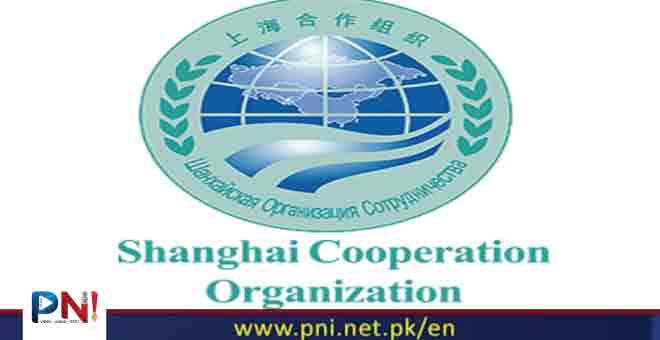BEIJING, May 19 (APP): China’s top diplomat, Wang Yi, is visiting Central Asia and will also attend a meeting of the Shanghai Cooperation Organization (SCO) Council of Ministers of Foreign Affairs.
The visit is expected to strengthen China’s cooperation with the region and improve coordination and preparation for the upcoming meeting of the Council of Heads of State of the SCO, according to Chinese experts.
They believe the SCO’s expansion and anti-terrorism efforts will top the agenda of this year’s meetings, and further highlight the organization’s influence and important role in a complicated international environment.
Chinese Foreign Minister Wang, who is also a member of the Political Bureau of the Communist Party of China Central Committee, met with Tajik President Emomali Rahmon in Dushanbe on Saturday, with both sides pledging to expand bilateral cooperation in various areas.
China is willing to deepen security cooperation with Tajikistan and resolutely combat all forms of terrorism, Wang said, adding that the two sides can strengthen cooperation in the United Nations, the SCO and the China-Central Asia mechanism, safeguard the common interests of the two countries and other developing countries, and make due contributions to the prosperity and stability of the region and the world at large.
Rahmon stressed that promoting relations with China is a priority of Tajikistan’s foreign policy, adding, the Tajik side firmly upholds the one-China principle and holds that Taiwan is an inalienable part of China.
Wang’s visit is set to coordinate and prepare for this year’s meeting of the Council of Heads of State of SCO. The expansion of this organization, as well as anti-terrorism will top the agenda of this year’s SCO meetings, given the current complicated international circumstances, Cui Heng, a scholar from the Shanghai-based China National Institute for SCO International Exchange and Judicial Cooperation, told the Global Times on Sunday.
Belarus plans to become a full member of the SCO in July, Belarusian President Alexander Lukashenko said, as quoted by the Belarusian state-run news agency BelTA in March.
Moreover, Saudi Arabia’s cabinet also approved a decision to join the SCO last year.
With the inclusion of those countries, the SCO can better coordinate its actions within the region and enhance its influence, Cui said, noting that the organization’s function in fighting terrorism is highlighted when terrorist attacks threatened some member countries.
Both Russia and Pakistan have been hit by terrorist attacks this year.
Secretary General of the SCO, Zhang Ming told the Global Times in an exclusive interview in March that the SCO strongly condemns such terrorist acts, which prompted more agreements in the SCO to unite with the international community to resolutely combat the “three forces” of terrorism, separatism and extremism.
Zhang said member states of the SCO always tend to reach consensus through consultation on many major issues, unifying their positions on the solutions to relevant problems.
In recent years, the SCO has been continuously strengthening cooperation with other international organizations, contributing new ideas and providing new solutions to global governance, representing a more democratic and multipolar world order, Zhu Yongbiao, director of the Center for Afghanistan Studies at Lanzhou University, told the Global Times on Sunday.
Experts also noted Wang’s visit will further deepen cooperation with Central Asian countries, as China’s cooperation with those countries in both traditional and new areas is gaining momentum.
China will take the rotating chair of the SCO from Kazakhstan in the second half of this year, thus Wang’s visit to Kazakhstan aims to further negotiate cooperation on chairing the organization in the next year, said Cui.
Follow the PNI Facebook page for the latest news and updates.









